What is this Insect on tomato leaves munching away.
Patti Chicago Zone 5b/6a
4 years ago
last modified: 4 years ago
Featured Answer
Sort by:Oldest
Comments (11)
Patti Chicago Zone 5b/6a
4 years agoRelated Discussions
Wilted leaves and tiny insects in my tomato plants
Comments (0)I have about 5 tomato plants in the garden. They have plenty of fruit on them. For the past 2-3 weeks the leaves have kind of folded in half. The wasps also have been going in and out of the folded leaves. Lots of wasps. I cut off a leaf just now and saw some pinhead size (some smaller), brown little larvae. I think it's larvae, but they are moving around. They are football shaped. So maybe not larvae just tiny insects. No wings. They are on the top side of the leaf. I think this is going to kill my plants. Does anyone know what this is? I am in Colorado, about 5,700 ft. z5...See Moreinsects bitting tomatoe plant leaves?
Comments (18)Flea beetles just love eggplants. And like peppers too. But have not seen them eat tomato laves. Flea beetle damage is only crucial when the plants are in seedling stage. They cannot cause any significant harm to mature plants. AND spraying cannot kill them because they have wings and fly away . There are other insects/bugs that eat peppers (NOT tomatoes), like slugs and earwigs. So I think you need to positively identify the insect and then go after them....See MoreIs there a garden net that is made to keep away ants and insects?
Comments (8)The problem with using DE is that it's a broad spectrum (non-selective) pesticide, creating a potentially harmful environment for many beneficial and important arthropods. Applying it with a duster can cause problems not only to them, but for the applicator, too, unless he/she wears goggles and dust mask. DE is best utilized in very limited situations, where it is not likely to harm non-target organisms. I use it in my outdoor containers which attract fire ants and in my garage (nooks and crannies) to help with spiders and centipedes....See MoreTiny grey insects on underside of tomato leaves
Comments (5)Yes, the plants bounce back, provided the aphids haven't transmitted a disease. Tomatoes are very good at recovering from physical trauma. I would prune off any seriously damaged foliage. New growth will happen quickly. As for guarding against pests, it depends on your philosophy. Are you someone that doesn't tolerate any plant damage at all? Are you more holistic? Organic? What is the environment the plants are growing in? Do you have an established population of good bugs, i.e., predators that eat pest bugs? Personally, I think that good cultivation practices like not overfertilizing your plants (plants that have had their growth pushed too far by high-nitrogen fertilizers are more attractive to pests), keeping garden plants away from overgrown, weedy areas that are likely to harbor pests and diseases, and nurturing beneficial predators, are important. But other than that, prevention through chemicals and application of products is just more fuss, time, and toxins put into the garden. I have a good balance of beneficials, so I just stay vigilant and inspect plants daily, especially the undersides of leaves, and take care of any problems if and as they arise. If I see a few aphids here and there, I leave them for the beneficials. If I see them starting to really colonize part of a plant, though, I deal with them. If a problem occurs that can't be taken care of manually by picking off pests ((infestation of flying/jumping pests or pests like caterpillars that can wreak a lot of destruction very quickly), there are many options from relatively nuclear options to various organic options, to turn to, depending on your personal philosophy. Disease is something else. If you are in an area that reliably gets fungal or bacterial disease issues, preventative spraying of fungicides on a regular schedule is a key tool in keeping your plants healthy longer and slowing down any diseases they do get. As with everything else, there are more hard-core options and more organic options. Some people choose not to spray until they see signs of disease. I personally think that, in any area with appreciable humidity, tomatoes are so prone to so many fungal and bacterial problems that preventative spraying is a good practice unless you are philosophically against it....See MorePatti Chicago Zone 5b/6a
4 years agoPatti Chicago Zone 5b/6a
4 years ago
Related Stories

GARDENING GUIDESOrganic Matters: Thwart Insect Pests With Trap Crops
Add a few sacrificial plants to your garden to lure insects away from the harvest
Full Story
FALL GARDENING5 Ways to Put Fall Leaves to Work in Your Garden
Improve your soil and yard the organic way with a valuable garden booster that grows on trees
Full Story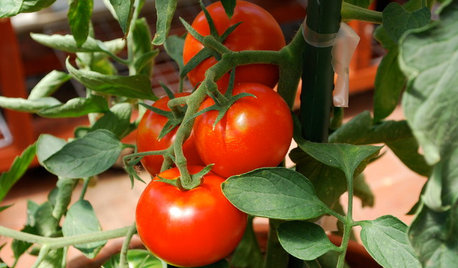
GARDENING 101How to Grow Tomatoes in Pots
Don’t have much space for a garden? All you need is a sunny spot and a large container to grow this favorite summer crop
Full Story
FALL GARDENING7 Reasons Not to Clean Up Your Fall Garden
Before you pluck and rake, consider wildlife, the health of your plants and your own right to relax
Full Story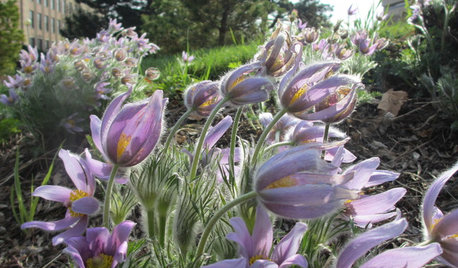
GARDENING GUIDES6 Plants That Beat Butterfly Bush for the Wildlife Draw
It's invasive, a nonnative and a poor insect magnet. Check out these better alternatives to butterfly bush in the garden
Full Story
GARDENING AND LANDSCAPINGBid Bad Garden Bugs Goodbye and Usher In the Good
Give ants their marching orders and send mosquitoes moseying, while creating a garden that draws pollinators and helpful eaters
Full Story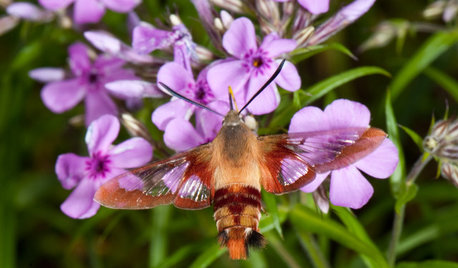
GARDENING GUIDESHummingbird or Moth? See Why You Want Clearwings Around
These fascinating moths may be helpful pollinators for your garden. Here’s how to coax them your way
Full Story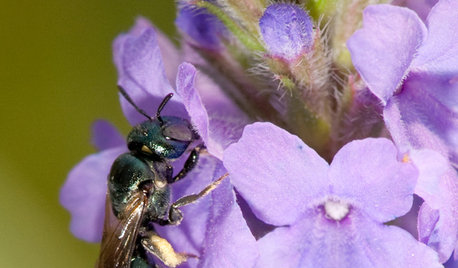
GARDENING GUIDESSmall Carpenter Bees Are Looking for a Home in Your Plant Stems
Provide flowers and nesting sites in your garden for this beautiful, tiny, metallic blue wild bee — your plants will thank you
Full Story
GARDENING FOR BUTTERFLIESGardening for the Bees, and Why It’s a Good Thing
When you discover how hard bees work for our food supply, you may never garden without them in mind again
Full Story
GARDENING GUIDESGoing on Vacation? How to Ensure Your Garden Survives
Water deeply, mulch beds and move containers into partial shade to keep plants alive while you’re away
Full Story


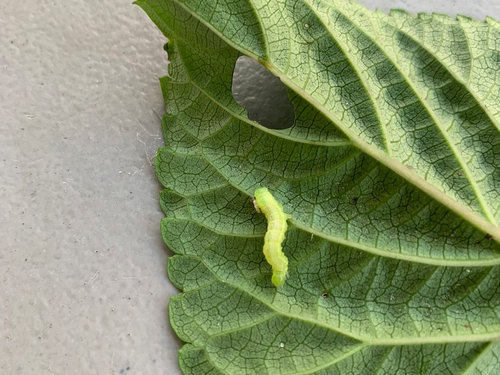

zen_man